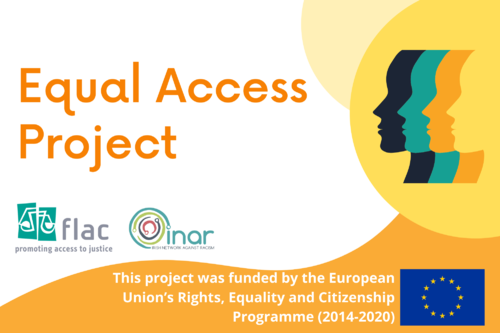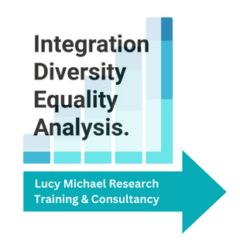
The Equal Access Project is a joint project by the Free Legal Advice Centre and Irish Network Against Racism.
It will improve access to justice for people who are subjected to discrimination on the basis of race or membership of the Traveller community.
There are three ways to get involved in the research:
1. Take part in a focus group – we will help you to join a focus group online, and we just need a little more information about you to ensure good fit with the group. Focus groups are confidential, but we will record anonymised data on gender, ethnicity, and age from all participants. The focus group discussion will take 1 hour, and will be conducted on zoom.
2. Organise a focus group – if you are involved with an organisation led by or supporting ethnic minority or migrant people, we will be happy to organise a focus group in your organisation.
3. Take part in a one-to-one interview – if you have taken a legal case at the WRC or District Court, we would like to interview you about your experience. All information is anonymised.
If you’d like to take part, please let us know a little more about yourself so we can help you to participate in the best way.
Focus groups and interviews
We are meeting with ethnic minority and migrant groups across Ireland through summer 2022 to understand
- how available is information on rights in cases of racial discrimination?
- how easy to access is that information?
- how useful is that information?
- what are the challenges of taking a complaint to the WRC or Courts for people affected by racial discrimination?
- are people affected by racial discrimination more likely to complain in some types of cases?
- how can access to justice be improved for various groups?
All participants will receive a voucher in thanks for their participation, and their information will be treated in confidence.

The legal research
We are conducting research into the transposition of the EU Race Directive into Irish law, and the effectiveness of the current infrastructure available to victims of racial discrimination to make complaints and to seek remedies.
This project is funded by the European Union’s Rights, Equality and Citizenship Programme (2014-2020).
